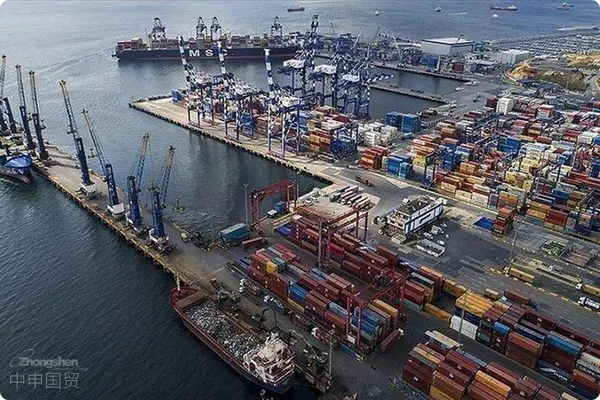- Shanghai Zhongshen International Trade Co., Ltd. - Two decades of trade agency expertise.
- Service Hotline: 139 1787 2118
Data recently released by the South Korean Customs Service reveals that due to a decrease in the number of working days and weak global demand for automobiles, South Koreas exports in the first 10 days of March decreased significantly by more than 13% year - on - year. Despite the overall poor export performance, South Koreas semiconductor exports bucked the trend and increased by 21.7%, demonstrating the strong momentum of the countrys chip industry.
According to data released by the South Korean Customs Service on Monday, chip exports in the first 10 days of early March reached $2.75 billion, accounting for 20.3% of the total exports during the same period. In addition, ship exports also performed well, surging by 431.4% year - on - year to $829 million, indicating a recovery in demand in the global ship market.
However, during the same period, automobile exports suffered a severe setback, dropping by 33% to $1.14 billion. This decline was mainly affected by the weakening of global demand for automobiles, especially in major markets. In addition, exports of petroleum products also decreased by 29.3% to $1.01 billion. Sales of steel products and auto parts also decreased by 30.9% and 24.5% respectively, reflecting the decline in global demand and the challenges of the international trade environment.
From the perspective of export destinations, exports to the Chinese mainland decreased by 8.9% to $2.89 billion, which may be related to the slowdown in Chinas economic growth and the weakening of its market demand. At the same time, exports to the United States also decreased by 16.3% to $2.35 billion, possibly affected by changes in US market demand and trade policies.
Although South Koreas exports in early March faced many challenges, the strong growth in semiconductor exports provided a glimmer of hope. As a major global semiconductor producer, the growth of South Koreas chip business is not only crucial to its domestic economy but also has an important impact on the global semiconductor supply chain. With the continuous growth of global demand for high - performance computing and data storage, the prospects of South Koreas semiconductor industry still look optimistic.
The South Korean government and enterprises may need to further analyze global market changes and adjust their export strategies to cope with the current international trade challenges. At the same time, in order to maintain economic growth and export competitiveness, South Korea needs to continue to strengthen technological innovation and market expansion in key industries such as semiconductors.
The release of this data not only serves as a reminder to the South Korean economy but also provides an important reference for other export - dependent countries on changes in the global trade environment.

Related Recommendations
? 2025. All Rights Reserved. Shanghai ICP No. 2023007705-2  PSB Record: Shanghai No.31011502009912
PSB Record: Shanghai No.31011502009912










